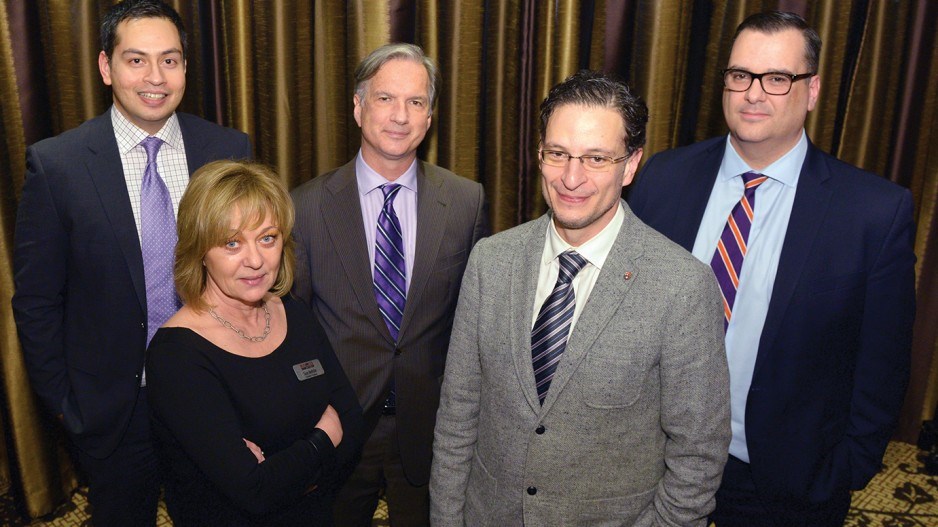It’s the question at top of mind for millions both inside and outside the U.S. right now: what kind of president will Donald Trump be and how will he affect my business, my life and my economic situation?
Three days before Trump’s official inauguration as the 45th president of the United States, three experts tackled the question head-on January 17 at Trump & Business in B.C, Business in Vancouver’s most recent Business Excellence Series event, which was held at the Shangri-La Hotel. James Moore, former federal industry minister and now a senior business adviser for Dentons Canada, noted fears surrounding the future of Canadian manufacturing under Trump, and outlined the magnitude of the potential problem.
A big fear for the Canadian economy revolves around the automotive manufacturing sector in particular under Trump’s proposed protectionist policies. Trump has already taken shots at various car companies, specifically calling out manufacturers on multiple occasions. Moore noted that one in five Canadians depends on trade with the U.S. for their jobs.
“Ontario is one-third of Canada’s population but it’s 42% of Canada’s economy,” Moore said. “The backbone of [Ontario’s] economy is the manufacturing sector and the centrepiece of that is the auto sector. This is the centre core of the Canadian economy.”
Trump’s plans to slash corporate tax rates are also raising questions about their potential effect on Canadian corporations with direct ties to the U.S. Panellist Sidhartha Rao, who works in international tax services for MNP LLP and received a law degree from Indiana University, said while it’s not yet known what numbers will be officially implemented, a divide between Trump and his own party is already apparent.
“What’s going on right now is you have two competing plans, one being put forth by the Trump administration and one being put forth by the Republicans,” Rao said.
“There are some similarities between the two plans but there are also some differences as well. Both plans include lowering the corporate tax rate significantly, so Donald Trump’s plan would lower the tax rate down from 35% to 15%. The GOP plan would lower it down to 20%.”
Panellist Mario Canseco, vice-president of public affairs for Insights West, has been tracking Canadians’ feelings about Trump for more than 18 months. Canseco said the view of Trump from up north has been clear and unwavering from the start.
“When we asked Canadians about [Trump], what’s interesting is first of all there is not a lot of confidence in the Trump administration,” he said. “The level of favourable views of Donald Trump and his presidency at this particular stage in Canada is 17%, so less than one in [five] Canadians believe things are going to be OK.”
Canadians voiced their concern in an Insights West poll during the final week of the presidential election in November. One-third of respondents at that time said Justin Trudeau’s Liberal government should sever diplomatic ties with Trump if he won the election. Canseco said he doesn’t expect this overwhelmingly negative view to change any time soon.
Regardless of some of the more sobering statements made during the panel talk with moderator Kirk LaPointe, who is Business in Vancouver’s vice-president of audience and business development, Moore did leave the crowd with some perspective on the limits of executiver power in the U.S.
“The physical centre of Washington, D.C., is the Congress of the United States,” Moore said. “It’s in middle of those four quadrants symbolically for a reason because it’s the centre of power. Not the White House, not the Supreme Court. Congress, they are Article 1; they are the centre of power in the United States.”
Moore added if Trump continues to damage his relationship with Congress and prominent members of the Republican establishment, he might tie his own hands for four years while the party sets its own agenda.
“Donald Trump needs to be getting some very quick advice as to the powers of the president as opposed to the powers of Congress,” he said. “Because a lot of the things he’s rhetorically promised to his base, let alone building a wall, he doesn’t have the power to do.”




